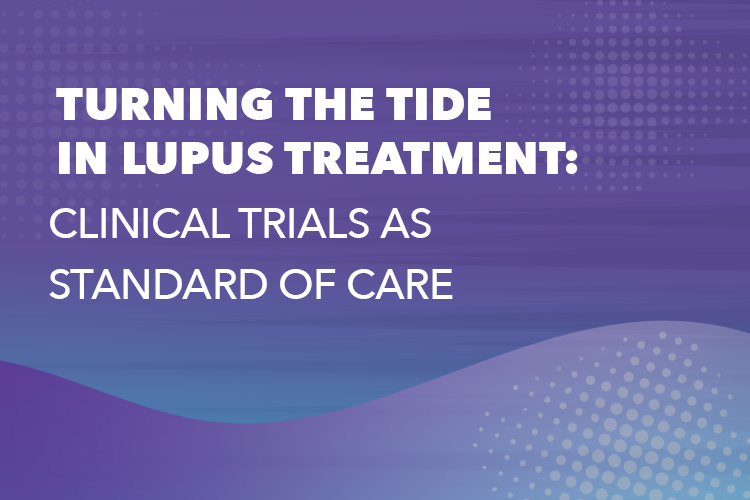
An IDEAL Initiative in Lupus Research: Q&A With Dr. Stacie J. Bell, Lupus Therapeutics, and Dr. Teodora Staeva, Lupus Research Alliance
Could diet and gut health impact the lived experience of lupus? This intriguing question lies at the heart of a groundbreaking initiative by Lupus Therapeutics (LT), the clinical research affiliate of the Lupus Research Alliance (LRA), called IDEAL (Investigate Dietary Approaches for Lupus). IDEAL will provide up to two grants for pilot clinical studies evaluating the impact of diet and the gut microbiome* on lupus management and disease course, a maximum grant of $500,000 each over a two-year period.
The gut microbiome, a complex community of microorganisms in the gastrointestinal tract, plays a critical role in digestion, immune function and overall health. Research suggests the microbiome may also influence autoimmune diseases like lupus. Diet is a key factor influencing the microbiome, and hence overall health.
In this article, LT Chief Clinical Research Officer Stacie J. Bell, PhD, and LRA Chief Scientific Officer Teodora Staeva, PhD, explain the origin of IDEAL, what it means for people living with lupus, and the desired impact of the initiative.
What sparked IDEAL and what makes it unique?
Stacie J. Bell (SJB): IDEAL is the first-of-its-kind effort to fund a well-controlled pilot clinical study evaluating the impact of diet and the gut microbiome on the lived experience of lupus. The initiative is built on LRA-seeded research and accumulated intelligence over the years. Importantly, the initiative was developed with feedback from individuals living with lupus and their caregivers, who are keen to know how best to support the lupus lived experience and optimize treatment beyond medications. While there have been some productive assessments of diet and the microbiome in other disease states, particularly other autoimmune diseases, there is a void of well-controlled studies in lupus.
Teodora Staeva (TS): Over the past decade, Dr. Martin Kriegel (University of Münster, Germany, Yale School of Medicine) and Dr. Gregg Silverman (NYU Grossman School of Medicine) have been conducting pioneering research on the role of the microbiome in lupus. Their studies, including those partly funded by LRA, revealed that certain gut bacteria may trigger autoimmune responses in animal models and/or people with lupus and provided a rationale for further exploring the role of diet and gut health in disease management. In 2019, the LRA hosted the first international conference on the role of the microbiome in lupus and convened subsequent smaller meetings to define the best approach for LRA to accelerate progress in this field. Slowed by the pandemic but undeterred in LRA commitment to this critical field, Lupus Therapeutics took on leadership of this program in 2024, leading to the establishment of the IDEAL initiative.
How can the IDEAL initiative help make a difference for people living with lupus?
SJB: If successful, the pilot study or studies will be a steppingstone into providing clarity for long-term dietary care and intervention. The investigations may also provide insight on how the gut microbiome influences the development and progression of lupus. Finally, differences in gut microbial makeup might contribute to the understanding of the different variations of lupus (heterogeneity).
Why is the LRA, and in particular, LRA research affiliate Lupus Therapeutics, uniquely positioned to lead the IDEAL initiative and leverage the outcomes for the benefit of the lupus community?
SJB: Strategic focus, robust experience, and broad network. The LRA is committed to gaining a better understanding of lupus and searching for all possible ways to improve the lived experience of individuals, adding to traditional treatments. For this reason, LRA has focused on growing the body of knowledge and research on the connection between the gut microbiome and lupus. Lupus Therapeutics, which oversees the Lupus Clinical Investigators Network (LuCIN), is well positioned to lead this initiative because of the invaluable clinical and patient network, expertise, and engagement.
TS: It comes down to this: If not LRA and Lupus Therapeutics, who will do this work? Patients are asking their providers, “Can diet help?” LRA and Lupus Therapeutics are in a unique position to help fill that gap and share findings with a broad network of professional and lay audiences.
The IDEAL grant application is requesting a “clinical proof-of-concept pilot study.” Please explain what this means and what comes next.
SJB: A clinical proof-of-concept pilot study is a small-scale preliminary study designed to evaluate the feasibility, time, cost, risk and performance of a new treatment or intervention. It informs future, larger studies by identifying what may or may not work. IDEAL is looking for early-stage answers that merit future attention and study.
TS: The goal is to move diet and microbiome research in lupus forward and stimulate early ideas for consideration. The eventual solutions need to be accessible, affordable and equitable, but that’s a focus for the next phase of study.
Why is it important for the IDEAL pilot study to take a multidisciplinary approach, include a well-defined patient population, and keep patients at the center?
SJB: Because lupus can affect people differently and there are many aspects to evaluating diet and the microbiome, a multidisciplinary team is needed to stimulate ideas. This could include, for example, experts in lupus, rheumatology, immunology, gastroenterology, nephrology, nutrition and diet. A well-defined patient population involves focusing on patients who are representative of the pilot study hypothesis or premise, for example, the effects of a particular diet on cutaneous lupus (lupus that affects the skin). Keeping patients at the center means including input from those living with lupus on study design and possibly evaluations and making it easy for patients to participate in the study. The latter is important now and, in the future, should the proposed intervention be put into practice.
March is National Nutrition Month. Do you have any advice for people with lupus looking for dietary advice to potentially help with disease management?
SJB: Patients can talk to their healthcare providers about their diet and nutrition, and whether they can be referred to a nutritionist or dietician who has experience working with people with lupus.
*The microbiome1
- The microbiome consists of trillions of microorganisms (also called microbiota or microbes), with the largest numbers found in the small and large intestines but also throughout the body. These include not only bacteria but fungi, parasites, and viruses.
- There are many helpful and some potentially harmful microbes. In a healthy body, both can coexist without problems.
- But if there is a disturbance in that balance—brought on by infectious illnesses, certain diets, or the prolonged use of antibiotics or other bacteria-destroying medications—normal interactions stop. As a result, the body may become more susceptible to disease.
- It is this disruption that is thought to potentially contribute to or be impacted by autoimmune disease.
1. Harvard T. H. Chan School of Public Health. The Microbiome. The Nutrition Source. Available at: https://nutritionsource.hsph.harvard.edu/microbiome. Accessed January 16, 2025.


